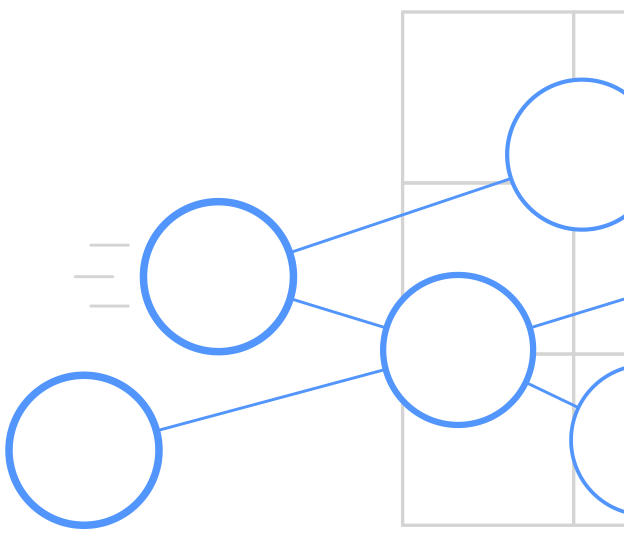 Simit
Simit
A language for computing on sparse systems
Simit is a new programming language that makes it easy to compute on sparse systems using linear algebra. Simit programs are typically shorter than Matlab programs yet are competitive with hand-optimized code and also run on GPUs.
With Simit you build a graph that describes your sparse system (e.g. a spring system, a mesh or the world wide web). You then compute on the system in two ways: locally or globally. Local computations apply update functions to each vertex or edge of the graph that update local state based on the vertex or the edge and its endpoints. This part of the language is similar to what you find in graph processing framework such as GraphLab and its descendants.
Global computations also start locally with functions applied to each vertex or edge. However, instead of updating local state the local functions now assemble a piece of a global vector or matrix. After this assembly, you can compute using normal linear algebra on the global vectors and matries, and resulting vectors can be stored back to graph fields. The Simit compiler takes care of exploiting sparsity and other optimizations, leading to code that is often simpler than Matlab yet comparable in performance to hand-optimized C++.
Simit graphs are more flexible than what you find in other graph frameworks. A Simit graph consists of any number of sets. Some of these are vertex sets while others are edge sets. Both vertex and edge sets can have data fields, but the edges of an edge set also connects vertices/edges from other sets. Finally, edges can connect any number of vertices/edges, which means that graphs in Simit are hypergraphs.
Simit is open source, under a commercially permissive MIT license. We encourage you to use it in open source or commercial projects!
Tensor Algebra Compiler: We are building a sparse linear/tensor algebra compiler to serve as a new engine for Simit, so that we improve performance and add new features such as support for constraints and tensors. The tensor algebra compiler will also be available as a standalone C++ sparse linear/tensor algebra library. For more information go to tensor-compiler.org.
To learn more about the Simit programming model check out our TOG 2016 paper.
Or see a talk about Simit at Microsoft Research: